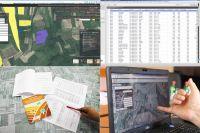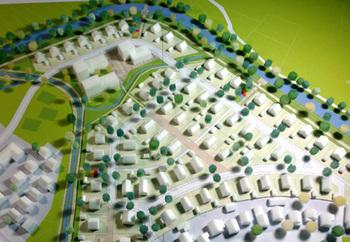Approach
The project advises national and local actors in order to improve integrated land management in urban and rural areas and achieve a balance between urban and rural development.
The project’s activities focus on strategic land management documents, improved information exchange between the relevant institutions, strengthened human and institutional capacities, and the development of learning partnerships. Gender equality, EU standards and reducing the negative impacts of climate change on the environment and biodiversity are taken into consideration.
The project initiates cross-sectoral cooperation on integrated national and local land policy among the different stakeholders. It supports the automatic exchange of data and information between national and local institutions and with the national land registry.
Modern urban land management, especially urban development, architecture and land consolidation for building projects, are backed by knowledge development and technical advice. Human and institutional rural land management capacity is primarily being reinforced by the country-wide introduction of online IT solutions for managing state-owned agricultural land and by the establishment of a pool of experts on modern land consolidation.
The consulting firm AMBERO is supporting the urban land management project.
Results
Integrated urban development plans have been developed and adopted in several cities. The National Land Use Code has been adopted and uniform nationwide standards for spatial and urban development plans now exist for the first time. The process of preparing a national strategy for sustainable, integrated urban development has been initiated and adopted by the government.
Attempts to use land consolidation for building projects as an instrument began in two pilot projects; the idea was to sustainably develop urban building land in a participatory process.
Six pilot land consolidation projects have been successfully completed; they involved about 3,000 participants and covered roughly 4,400 hectares of agricultural land. The process for consolidating agricultural land in compliance with the European Union standards takes place in a participatory, transparent process with an environmental impact assessment as a mandatory element. The statutory rules for applying modern approaches have been passed onto the partner ministries for approval.
The leasing of state-owned agricultural land, using the newly introduced web-based IT solution, resulted in a 120,000-hectare increase in agricultural land and additional revenues of 27 million euros.

